Dirty Kanza Tips And Tricks From One Retired Roadie To Another
Dirty Kanza Tips And Tricks From One Retired Roadie To Another
Michael Sheehan talks Dirty Kanza with past winner and retired world tour cyclist Ted King
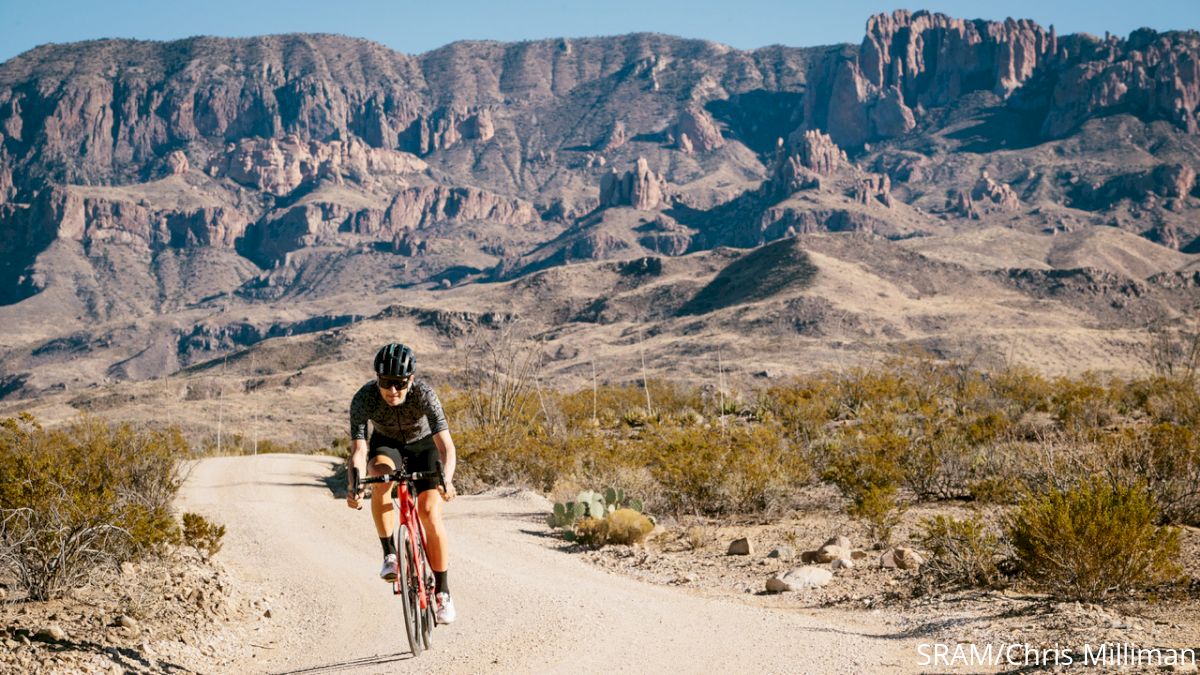
To call myself a retired professional cyclist would be taking a bit too much liberty with both the words “retired” and “professional.” A more accurate description of my current existence would read: “I am in recovery from a brief foray into the lower echelons of the professional peloton.”
That—however—is not to say that I have hung up my race wheels.
Like many of my peers from the milieu of road cycling, I have unwittingly been lured into the picturesque world of adventure racing—or if you prefer, gravel grinding. I don’t know when the exodus from traditional road racing began to pick up steam, but with no fact checking or historical context, I often give credit to my former Jelly Belly Pro Cycling teammates Gus and Lachlan Morton. Their 2013 film Thereabouts popularized the notion amongst us millennial cycling types that adventure and exploration deserve a more central role in cycling.
Since then, the tides have certainly been shifting in the world of cycling.
A report published by Bicycle Retailer and Industry News in October 2017 states that road bike shipments declined 12 percent from 2016, while gravel and adventure bike shipments were up 53 percent, representing a $17.4 million increase in sales. The numbers don’t lie, there’s something to this gravel thing.
An Audience With The King
With the Dirty Kanza 200 looming on my horizon, I decided to give former DK 200 champion Ted King a call. King has competed at the sport’s highest level, racing in the Tour de France, and thoroughly earned the distinction of a retired professional road cyclist.
Like myself, King retired from pro road racing without any aspirations or intentions of launching into another competitive arena of the sport, but when sponsors began to come forward, he realized that becoming as he calls it “a professional retiree” was a viable option.
King retired from Cannondale-Garmin at the end of 2015 and 6 months later found himself winning the crown jewel of gravel races, the Dirty Kanza.
Herein lies my motivation for calling King. I am slated to join him and 2,200 plus riders at the start line in Emporia, Kansas—and I have no idea what I’ve gotten myself into.
Dirty Kanza is a 206 mile gravel race through the rolling Flint Hills of Kansas. It began in 2006 with 34 participants and has grown into arguably the premier gravel race. For someone like King, looking for a reprieve of the monkish existence of World Tour racing, training for a race with a total saddle time of 11 and a half hours may seem like a questionable undertaking. But King is not shy about his mental approach to racing these days.
Join PRO to access the Dirty Kanza 9 week training plan.
Talking About Practice
When asked how he balances his competitive nature with the mentality of a retiree, King explains that he goes to Kanza, “entirely with the purpose of having fun and what gravel represents.”
“You know, it’s like been there done that, raced the ProTour thing, did my intervals, starved myself for too long and now I’m doing it to have fun. I’m still having a good time and staying competitive but basically just really enjoying the sport,” says King.
“You race at any professional level, even Cat 1, you make so many sacrifices to get to that level. You know how to diet, you know how to do intervals. That’s difficult and arduous and sort of torturous and it certainly makes bike racing a job.
“So when I go to these events, yeah, I definitely have that competitive edge and I have that competitive spirit. I want to do well, and I have tactics and I have a ton of residual fitness, but I know that I’m leaving something at the door. Like I had beers the night before. I didn’t go to bed with a pasta dinner and a glass of water.
Hurt So Good
While King may be retired from the the traditional professional training regimen, he clearly has not lost his love of the sport. In fact, hearing him talk about Dirty Kanza makes it seem as if crazy gravel races have only helped to reconnect him with his love of cycling.
And while he may not be employing a traditional training regimen for gravel success, his years on the World Tour are picking up the slack for him.
To train exclusively for Dirty Kanza is insane, like it’s virtually impossible,” says King. “I know how to ride off road, I know how to ride cobblestones, and I know how to ride long distances.”
“There are more and more of these 200 mile races, so you could put together a training schedule, but you probably wouldn’t have much of a life or family otherwise,” King says, which would defeat the entire purpose of transitioning to gravel racing in the first place.
King drew on knowledge from former winners Rebecca Rusch and Dan Hughes, but admits that winning Kanza on his first attempt was “kind of dumb luck.”
“I went on a hundred mile flier and ended up winning the race. It’s goofy because at the end of that particular race I said oh my god that was really really really hard and I don’t think I ever want to do DK again. Then you know, fast forward nine months and it’s time to get ready for it again and I’m like ok yeah, I’ll go back.
“Then, In 2017, I had some really bad luck, so the second I crossed the finish line I was like, ‘I need to go back, I need to redeem myself,’” says King.
Join PRO to access the Dirty Kanza 9 week training plan.
The Changing Landscape Of Groad
King has traveled the world and raced pretty much every pro roadie bucket list race during his career—yet he now finds himself hooked on gravel racing in his retirement. He did however express trepidation when I asked if he agreed that gravel is the next big thing in cycling.
“Yea, in a way it’s jumping the shark to even acknowledge it that way. I don’t disagree, gravel is really fun. There’s something you can’t quite put your finger on, but there’s something very welcoming and fun and curious and… you know, gravitating towards gravel,” King says.
“Whereas a lot of other genres and facets of cycling, be it road or track or cyclocross, it’s almost like it’s too professional. You can’t get into cyclocross now unless you know how to bunnyhop a barrier at the age of twelve. Road racing is cut throat. The point is how do we keep gravel as fun as it is? How do we not let it breach this hyper competitive level and still make it very curious and something that people want to do.”
For those of us who who have committed years of our life to the pursuit of being as uncompromisingly fast as possible on a bicycle, there is a certain sanctity in races like Dirty Kanza. There is no cash purse on the line for the winner. In fact the only material thing you can go home with is a belt buckle awarded to that year’s king and queen of gravel.
Unlike Any Other Event
At this point I innocently ask Ted what skills a gravel neophyte might need to tackle their first Dirty Kanza. Sensing my ulterior motives for this phone conversation he exclaims “Oh man, I’m giving tips to my professional brethren?!?” Did I mention I’m racing Kanza this year?
In sporting fashion, King humored me and explained the bike handling skills required are no more demanding that that of navigating an NRC crit. “[Dirty Kanza] is a relatively subdued race. It’s raced similar to a Belgian kermesse in that it’s not a ferocious start. It’s not a cyclocross start where people are gunning it off the line,” King says.
“I mean, you’re racing for 12, 14, 16 hours, so thankfully people are a little bit aware. It’s a mass start, so call it 2,500 people, and after an hour it’s a hundred, and then after another hour it’s 50, and then after another hour it’s 20. You find your group and you find your pace and you find what’s going to work well for you.”
I pushed, and asked if King found himself having any dark moments out on course? “We had a pretty screaming tailwind for the first hour. So in effect you’re doing a big loop. Like we start at 12 o’clock (picture a clock) and then we get down to about 6 o’clock—and we didn’t totally realize it, we knew it was breezy—but that entire time we were getting a tailwind.
“So it was around then that I took off on this hundred mile flier only to soon relize that I’m going to go into a hundred mile headwind. Which, you know that’s enough to make you question your decision to do it.
“Yea, there’s no time checks, there’s no referees you don’t know what your lead is, and at the same time, you’re starting to catch the people doing the hundred mile race. So you go over these little hills all the time and you look in front of you and behind you and you see these little specks of people. So my dark place is, ‘is that person catching me? Is that second place?’
“You’re going as hard as you can, but it’s like racing at altitude. You know, your power at hour nine is nothing like it is at hour one. So yea, it’s a total mental game too,” says King.
And what does a retired professional cyclist eat as a post Dirty Kanza victory meal?
King recalls going to a Mexican joint, having, “a bowl full of margarita and probably something delicious inside a tortilla.”
King left me feeling a lot better about my impulsive decision to launch into gravel racing.
“It’s a similar vein to Leadville,” he says. “At one point it was just a totally zany counterculture race and now it’s got some huge following. You’re gonna get a total kick out of it. It’s not just the distance or the time, it’s a curious vibe, it’s unlike any other cycling event I’ve ever done.”
Related Content
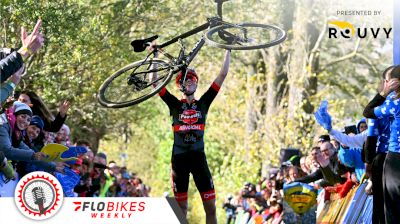 Fem Van Empel Is Helping Change The Landscape Of Women Cyclocross One Bunnyhop At A Time
Fem Van Empel Is Helping Change The Landscape Of Women Cyclocross One Bunnyhop At A TimeNov 2, 2022
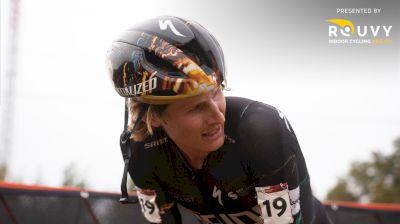 Lance Haidet And The Long Road (And Off-Road) To Hoogerheide Cyclocross World Championships
Lance Haidet And The Long Road (And Off-Road) To Hoogerheide Cyclocross World ChampionshipsOct 21, 2022
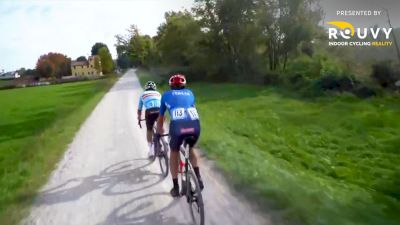 Despite A Furious Start, Daniel Oss Found More Smiles At Gravel Worlds Than At A Road Race
Despite A Furious Start, Daniel Oss Found More Smiles At Gravel Worlds Than At A Road RaceOct 14, 2022
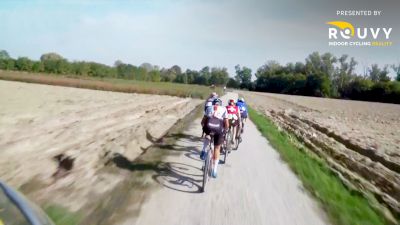 Gravel World Championships Just 'Cool' With Rider Camaraderie - Emily Newsom
Gravel World Championships Just 'Cool' With Rider Camaraderie - Emily NewsomOct 14, 2022
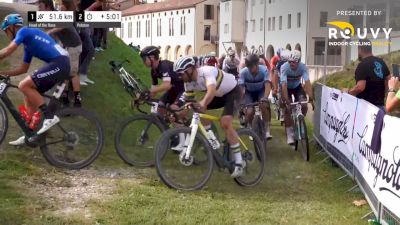 Nathan Haas Buzzing After Hardest Gravel Race At World Championships
Nathan Haas Buzzing After Hardest Gravel Race At World ChampionshipsOct 13, 2022
 October Means World Championships And World Cups As Road Season Wraps Up | FloBikes Weekly
October Means World Championships And World Cups As Road Season Wraps Up | FloBikes WeeklyOct 12, 2022
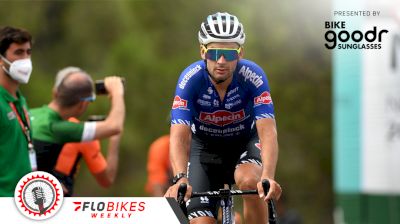 Road Racers Excel At Inaugural UCI Gravel World Championships
Road Racers Excel At Inaugural UCI Gravel World ChampionshipsOct 12, 2022
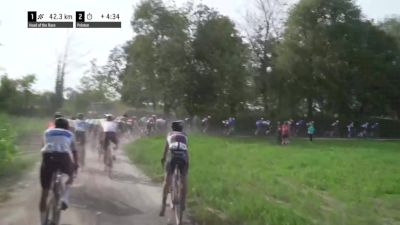 Replay: 2022 UCI Gravel World Championships - Elite Men
Replay: 2022 UCI Gravel World Championships - Elite MenOct 9, 2022
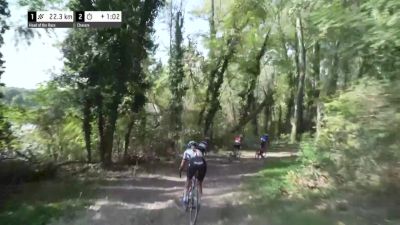 Replay: 2022 UCI Gravel World Championships - Elite Women
Replay: 2022 UCI Gravel World Championships - Elite WomenOct 8, 2022